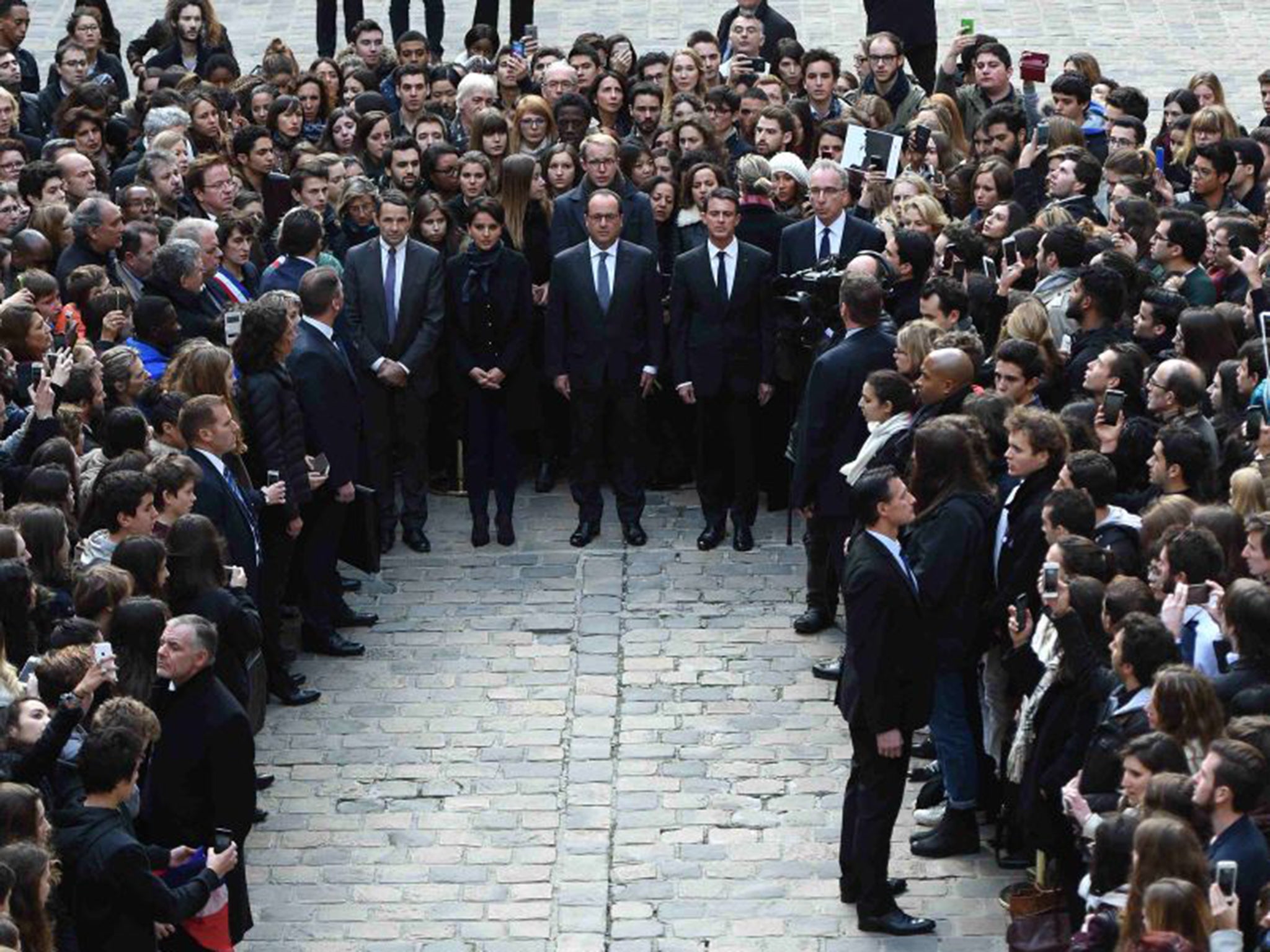Paris attacks: Terrorist atrocities pose further threat to the values of European politics
There is still much that Europe’s leaders can and must do to secure the safety of all their peoples

At times like these, it is a wise idea to think about what the terrorists want, and do the opposite. With the recent terror attacks in Turkey, Egypt and Paris, it seems plain that they have at least three objectives. First, to divide the progressive states they oppose. Second, to attack the “grey zones” where Muslims and non-Muslims live and mix together peacefully, as in those tourist resorts. Third, to breed resentment towards refugees, and to provoke a violent response among those they attack. In that respect they are simply following the model offered by Bin Laden in the attacks on 9/11.
So these terrorist atrocities also pose a further threat to the values of European liberal politics, and the institutions that have grown out of those principles – the European Union itself. The allies of Isis would like nothing more than for the European powers to quarrel and blame each other; to use the murder of innocent people to deny asylum to other innocent people; and to close borders and impose further chaos on Europe’s citizens.
In fact, as with the more distant but existential threat of climate change, terrorism is something that has to be dealt with cross-border. As we have seen, the activities and movements of these murderers went across many European states. Would it have made things harder for them if the EU did not exist? Would we really be able to seal off thousands of miles of border across every state on the continent? Would the French police have been better prepared to detect the car that carried a fugitive out of their country if there was less co-operation with the German and Belgian police?
Though the term “Euroscepticism” may not be familiar to every would-be jihadist, they enjoy the spectacle of Europe’s leaders squabbling, and thus weakening their response to this modern terror. They will be exceptionally pleased, for example, if the Front National does well in the French elections next month and in the presidential contest in 2017. The use of the words “merciless” and “pitiless” in President Hollande’s response is also the sort of language they prefer us to use, adopting some of their own extremism as a result of an intolerable provocation. The interests of Isis would also be well served if Britain quits the EU.
Which brings us to the still-unfinished business of dealing with Europe’s other centripetal forces, especially in its economy. The competitiveness problem highlighted most recently in the Prime Minister’s application to renegotiate Britain’s terms of membership is at the base of much of what has gone wrong in the eurozone. Rigid labour and sclerotic product markets, unreformed state sectors and over-generous social provision in places has meant that Europe is unable to provide jobs for its youth. It is, among other things, one reason why so many of the young poor living in the banlieues of Paris rioted a few years ago, and why some young people of North African and Muslim heritage feel disaffected with French society.
Of course, many young terrorists have been well-educated, as were the 9/11 gang. Still, as terrorists find recruits and support among the young and the hopeless, then the European economy must provide some hope. We should not forget, either, that the Arab Spring, such as it was, first erupted in Tunisia precisely as an economic protest.
Europe, then, is under threat, and not just from crazed killers with Kalashnikovs and suicide belts. There is still much that Europe’s leaders can and must do to secure the safety of all their peoples and they are much better off trying to do that together.
Join our commenting forum
Join thought-provoking conversations, follow other Independent readers and see their replies
Comments